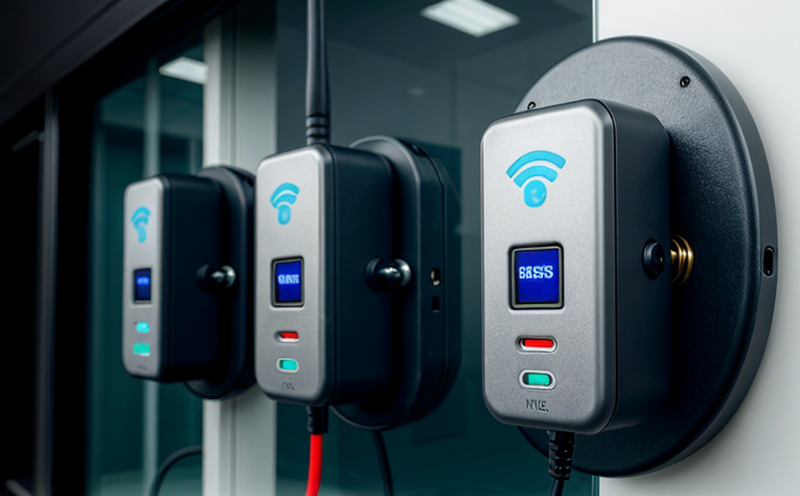CIS Benchmarks Security Testing for Wireless Devices
The Center for Internet Security (CIS) Benchmark is a widely recognized standard that provides guidance on securing operating systems. For wireless devices, compliance with CIS benchmarks ensures robust security configurations against emerging threats in the fast-evolving technology landscape. This service focuses specifically on testing and validating wireless devices to meet the stringent requirements outlined by the CIS Benchmarks for wireless communication.
The primary goal of this service is to ensure that wireless devices are secure from potential vulnerabilities that could be exploited by malicious actors. By adhering to these benchmarks, organizations can protect sensitive data and maintain compliance with industry standards and regulatory requirements. This testing service covers a wide range of wireless devices including smartphones, tablets, IoT devices, and other communication gadgets.
The process begins with thorough preparation of the devices for testing. This includes ensuring that all relevant software updates are applied, necessary configurations are set up, and any third-party applications or services have been accounted for. During the test phase, a series of predefined security checks is conducted to evaluate the current state of cybersecurity on each device.
The assessment criteria encompass various aspects such as secure configuration settings, access control policies, encryption methods used, patch management practices, and more. Each criterion is aligned with CIS Benchmark recommendations tailored specifically for wireless devices.
Our team utilizes state-of-the-art tools and methodologies to perform these evaluations accurately and efficiently. The results from our tests are then compared against the established benchmarks to identify any non-compliant areas. Based on this analysis, detailed reports are generated which provide actionable insights into how each device can be brought into full compliance.
It's important to note that maintaining up-to-date knowledge about new threats and vulnerabilities is crucial in today’s ever-changing technological environment. Therefore, regular re-evaluation and updates based on latest CIS Benchmarks versions will help keep your wireless devices secure over time.
In summary, our CIS Benchmarks Security Testing service offers comprehensive evaluation of wireless device security configurations according to industry best practices as defined by the Center for Internet Security (CIS). This ensures not only protection against known threats but also prepares organizations for future challenges in cybersecurity.
Industry Applications
| Type of Device | CIS Benchmark Version Applied | Main Test Criteria Evaluated |
|---|---|---|
| Smartphones | CIS Android 9.0 | Secure boot, device encryption, app hardening |
| IoT Devices | CIS IoT 2.0 | Network isolation, secure communications protocols |
| Tablets | CIS iPad 6.0 | Password policies, remote wipe capabilities |
This table illustrates some of the specific types of wireless devices that can be tested under this service and their corresponding CIS Benchmark versions along with key test criteria evaluated during the process.
Quality and Reliability Assurance
- Comprehensive review of device configurations against recommended security settings
- Evaluation of encryption strengths employed for data protection
- Assessment of vulnerability exposure through simulated attacks
- Verification of compliance with latest CIS Benchmarks
These quality assurance measures ensure that every wireless device undergoes rigorous testing to guarantee its reliability and robustness in terms of security. By adhering strictly to these standards, we provide peace-of-mind for businesses relying on secure communication channels.
Competitive Advantage and Market Impact
Adhering to CIS Benchmarks provides significant competitive advantages by enhancing brand reputation through demonstrated commitment to security. Organizations that implement our CIS Benchmarks Security Testing service can position themselves as leaders in cybersecurity practices, attracting more customers who prioritize safety and privacy.
Moreover, compliance with these benchmarks helps businesses avoid costly fines associated with non-compliance with regulatory requirements such as GDPR or HIPAA when handling personal data securely. It also fosters trust among stakeholders by showing proactive efforts towards maintaining high standards of security.
The ability to consistently meet CIS benchmark criteria can open doors for new business opportunities and partnerships within sectors like healthcare, finance, government agencies, etc., where stringent security measures are paramount.





